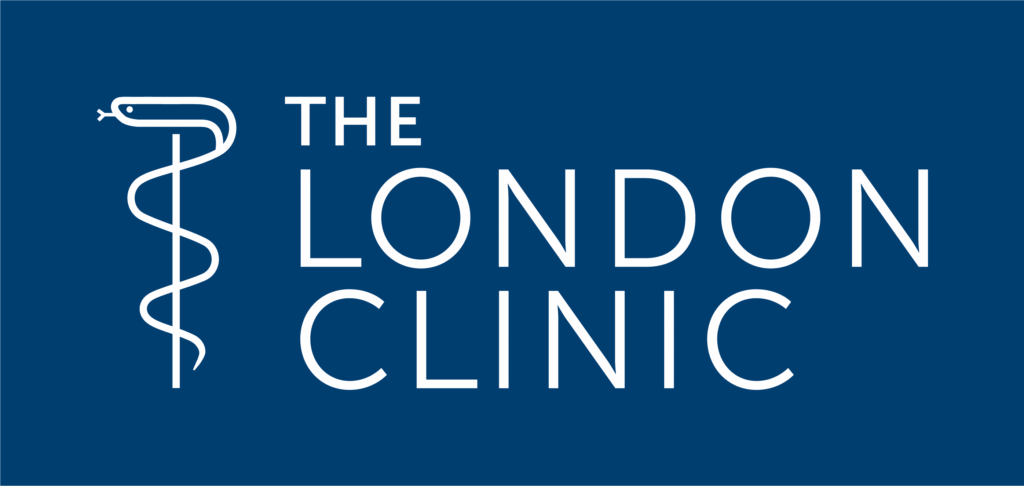Table of Contents
Main Takeaways
- What it is: Licensed therapists assess, treat, and rehab MSK neurological issues with manual therapy, exercise, and education.
- Why it helps: Personalised plans target root causes, speed recovery, and prevent future injuries backed by tech like telehealth and AI-driven triage.
- How to choose: Check credentials, evidence-based methods, transparent pricing (no commissions), reviews, and easy access slots.
- Extras to look for: Post-op protocols, deep tissue sports massage, specialist rehab, patient education, and holistic, team-based care.
- Practical wins: Flexible session lengths, insurance acceptance, and strong staffing help you stay consistent and recover faster.
Physical therapy clinics play a vital role in restoring mobility, reducing pain, and improving the quality of life for individuals suffering from injuries, chronic conditions, or post-operative recovery needs. With the U.S. physical and occupational therapy industry valued at $53 billion in 2024 and expected to grow to $70 billion by 2030, it’s clear that the demand for expert physical therapy services is on the rise. This growth reflects both the increasing awareness of physical therapy benefits and the evolving innovations in treatment methods, including the integration of AI to reduce referral times by 15%.If you’re in London, consider award-winning post-surgery physiotherapy in London to assess your needs and build a tailored recovery plan.
Whether recovering from a sports injury, managing chronic pain, or seeking rehabilitation after surgery, visiting a physical therapy clinic offers tailored care that addresses the root causes of physical ailments. This article explores what a physical therapy clinic is, the benefits of visiting one, and how to choose the best clinic near you, with a focus on expert insights and current industry developments.
What is a Physical Therapy Clinic

A physical therapy clinic is a specialized healthcare facility where licensed physical therapists provide evaluation, treatment, and rehabilitation services for musculoskeletal and neurological conditions. These clinics offer a range of therapies including manual therapy, exercise prescription, post-operative rehabilitation, and pain management techniques tailored to individual patient needs.
Clinics such as One Body LDN in London exemplify excellence in this field, with therapists receiving over five times the required regulatory training and combining hands-on treatments like deep tissue massage with exercise rehabilitation to deliver effective results. Their approach includes thorough assessments to identify the root cause of pain or dysfunction, followed by bespoke treatment plans that promote long-term recovery and improved mobility.
Physical therapy clinics also integrate the latest technological advancements. For example, studies have shown promising results in using robot-led physical therapy for Parkinson’s patients, enhancing engagement and potentially improving outcomes. Moreover, telehealth physical therapy services have surged by over 1000% since the COVID-19 pandemic, allowing patients remote access to expert care, which has been shown to improve assessment accuracy when using multi-camera setups.
In addition to these advanced treatments, physical therapy clinics often emphasize the importance of patient education. Therapists take the time to explain the mechanics of the body and the nature of the injuries or conditions being treated. This educational component empowers patients to take an active role in their recovery, fostering a deeper understanding of their health and encouraging adherence to prescribed exercise regimens. Workshops and informational sessions may also be offered, covering topics such as injury prevention, ergonomics, and the benefits of maintaining an active lifestyle.
Furthermore, many clinics are beginning to adopt a more holistic approach to treatment, recognizing that physical health is interconnected with mental and emotional well-being. This may involve collaborating with other healthcare professionals, such as psychologists or nutritionists, to provide comprehensive care. By addressing all aspects of a patient’s health, physical therapy clinics can enhance recovery outcomes and promote overall wellness, making them a vital resource in the healthcare landscape.
Benefits of Visiting a Clinic
Visiting a physical therapy clinic offers numerous benefits beyond simple pain relief. Clinics provide comprehensive care designed to restore function, prevent future injuries, and enhance overall physical health. One of the primary advantages is the personalized treatment approach. Therapists conduct detailed assessments to understand each patient’s unique condition and lifestyle, ensuring treatments are tailored and effective.
Patients benefit from hands-on therapies such as deep tissue massage, joint mobilizations, and targeted exercise programs that not only alleviate symptoms but also address underlying biomechanical issues. For example, clinics like One Body LDN combine exercise rehab with deep tissue sports massage to fix injuries and improve performance, supported by thousands of positive reviews and multiple industry awards.
Another significant benefit is the reduction in recovery time. The integration of AI and advanced technologies in physical therapy has led to faster referral processes and more efficient treatment delivery, which is crucial in preventing chronic conditions from developing. Additionally, clinics offer post-operative rehabilitation that follows surgeon protocols to safely rebuild strength and function, helping patients return to their daily activities confidently.
Moreover, the supportive environment of a clinic plays a pivotal role in the healing process. Patients are surrounded by professionals who are not only knowledgeable but also empathetic, creating a space where individuals feel understood and motivated. This emotional support can significantly enhance a patient’s commitment to their recovery plan. Group therapy sessions, often part of the clinic experience, foster a sense of community, allowing patients to share their experiences and challenges, which can be incredibly empowering.
Furthermore, many clinics provide educational resources that empower patients with knowledge about their conditions and the importance of maintaining an active lifestyle. Workshops and seminars on injury prevention, ergonomics, and wellness strategies are often available, equipping patients with the tools they need to take charge of their health. This holistic approach not only aids in recovery but also promotes long-term well-being, making physical therapy clinics a vital resource for anyone looking to improve their physical health.For detail knowledge see the blog Preventing Injuries Through Therapy.
Choosing the Best Clinic Near You
Selecting the right physical therapy clinic is essential for achieving the best outcomes. Factors to consider include the clinic’s reputation, the qualifications and experience of its therapists, treatment methods, and accessibility. Clinics that prioritize ongoing training and evidence-based practices tend to deliver superior care. For instance, One Body LDN’s team includes ex-athletes, NHS specialists, and former Team GB members, all receiving extensive training that exceeds standard requirements.

Transparency in pricing and ethical treatment prescriptions are also critical. Many clinics operate on a commission basis, which can lead to overprescribing treatments. Choosing a non-commission-based clinic ensures that the treatment plan is genuinely in the patient’s best interest. The only GBC-accredited physiotherapy clinic in London, One Body LDN, exemplifies this ethical approach with a 100% no-risk service guarantee, meaning if you’re unhappy with your treatment, your next session is free.
Convenience is another important consideration. Clinics located near major transport links with flexible hours, including weekends, accommodate busy lifestyles. Furthermore, acceptance of private health insurance and work benefits can make treatment more affordable and accessible. With the physical therapy industry facing a national vacancy rate of 9.5% in outpatient practices, nearly double the national average, finding a clinic with sufficient qualified staff is increasingly important.
In addition to these factors, the clinic’s approach to patient care can significantly influence your recovery experience. Look for clinics that emphasize personalized treatment plans tailored to your specific needs and goals. This individualized attention not only enhances the effectiveness of the therapy but also fosters a supportive environment where patients feel valued and understood. For example, clinics that incorporate patient feedback into their treatment strategies often see higher success rates and improved patient satisfaction.
Moreover, consider the range of services offered by the clinic. A comprehensive physical therapy clinic may provide additional modalities such as massage therapy, acupuncture, or specialized rehabilitation programs for sports injuries, which can complement your primary treatment. Access to a multidisciplinary team can also be beneficial, as it allows for a more holistic approach to recovery, addressing not just the physical aspects but also the emotional and psychological components of healing. This integrated care model can lead to more effective outcomes and a quicker return to your daily activities.
FAQ
What conditions can physical therapy clinics treat?
Physical therapy clinics treat a wide range of musculoskeletal and neurological conditions including sports injuries, back and neck pain, arthritis, post-operative rehabilitation, repetitive strain injuries, and chronic pain conditions such as fibromyalgia. In addition to these common issues, physical therapy can also address conditions like stroke recovery, vestibular disorders, and pelvic floor dysfunction. Each of these conditions requires a tailored approach, often involving specific exercises and techniques designed to promote healing and restore function.
Is private physiotherapy better than NHS physiotherapy?
Private physiotherapy often offers shorter waiting times, longer and more personalized sessions, and access to advanced treatment options. NHS physiotherapy is excellent but can involve longer waits and shorter appointments, which may delay recovery. Furthermore, private clinics may provide a wider range of specialized services, such as manual therapy, acupuncture, and hydrotherapy, which can enhance the treatment experience and outcomes for patients seeking comprehensive care.
How many sessions will I need?
The number of sessions depends on the severity and duration of the condition. Acute injuries may improve significantly within 4-6 sessions, while chronic conditions might require longer-term management and rehabilitation. It’s also important to consider individual factors such as age, overall health, and adherence to the prescribed exercise regimen, as these can all influence the recovery timeline and the total number of sessions needed to achieve optimal results.
Do physical therapy clinics accept insurance?
Many private clinics accept major private health insurance plans and work benefits, which can cover the cost of assessments and treatment sessions. It’s advisable to check with your insurance provider and the clinic beforehand. Additionally, some clinics offer flexible payment plans or packages that can make treatment more affordable, ensuring that patients can receive the care they need without financial strain.
Can physical therapy help with post-surgical recovery?
Yes, physical therapy is essential for post-operative rehabilitation. Therapists work closely with surgeons’ protocols to reduce pain, restore joint function, and rebuild strength safely. This process often includes a combination of passive and active exercises, manual therapy, and modalities such as ultrasound or electrical stimulation to facilitate healing. The goal is to help patients regain their pre-surgery level of function as quickly and safely as possible, which can significantly enhance their overall quality of life.
What should I expect during my first visit to a physical therapy clinic?
Your first visit typically includes a thorough assessment of your symptoms, physical examination, and discussion of your medical history. Based on this, a personalized treatment plan is developed to address your specific needs. Additionally, therapists may provide education on your condition, discuss realistic goals for recovery, and introduce you to the types of exercises and techniques you will be using in your treatment. This initial visit sets the foundation for your rehabilitation journey, ensuring that you feel informed and empowered as you progress.
Are telehealth physical therapy services effective?
Telehealth physical therapy has grown significantly, especially since the COVID-19 pandemic, and studies show that remote assessments can be effective, particularly when using multi-camera setups to improve evaluation accuracy. These virtual sessions allow patients to receive guidance and support from their therapists in the comfort of their own homes, making it easier to fit treatment into busy schedules. Moreover, telehealth can facilitate ongoing communication and adjustments to treatment plans as needed, ensuring that patients remain engaged and motivated throughout their recovery process.
How is AI changing physical therapy?
AI integration in physical therapy is reducing referral times and enhancing treatment personalization, leading to more efficient patient care and improved outcomes. By analyzing patient data, AI can help therapists identify patterns and predict recovery trajectories, allowing for more targeted interventions. Additionally, AI-driven tools can assist in monitoring patient progress through wearable technology, providing real-time feedback and enabling therapists to make data-informed adjustments to treatment plans. This innovative approach not only enhances the patient experience but also empowers therapists with advanced resources to optimize care delivery.
Experience Award-Winning Physiotherapy at One Body LDN
Don’t let pain hold you back from living your best life. At One Body LDN, we understand the importance of addressing the root cause of your discomfort. Our expert team of former athletes, ex-Team GB members, and NHS specialists are dedicated to providing you with personalized assessments and rehabilitation plans that target your specific needs. Whether you’re dealing with a gym injury, chronic back pain, or require post-operative care, we’re here to offer instant pain relief and long-term solutions. Voted as the best London physio clinic by thousands and recognized with multiple industry awards, we promise a results-based approach without overselling treatments. Take the first step towards recovery and book your free initial assessment at our clinic today. Your health is in capable hands with One Body LDN, where excellence in musculoskeletal and sports injury physiotherapy awaits you.


